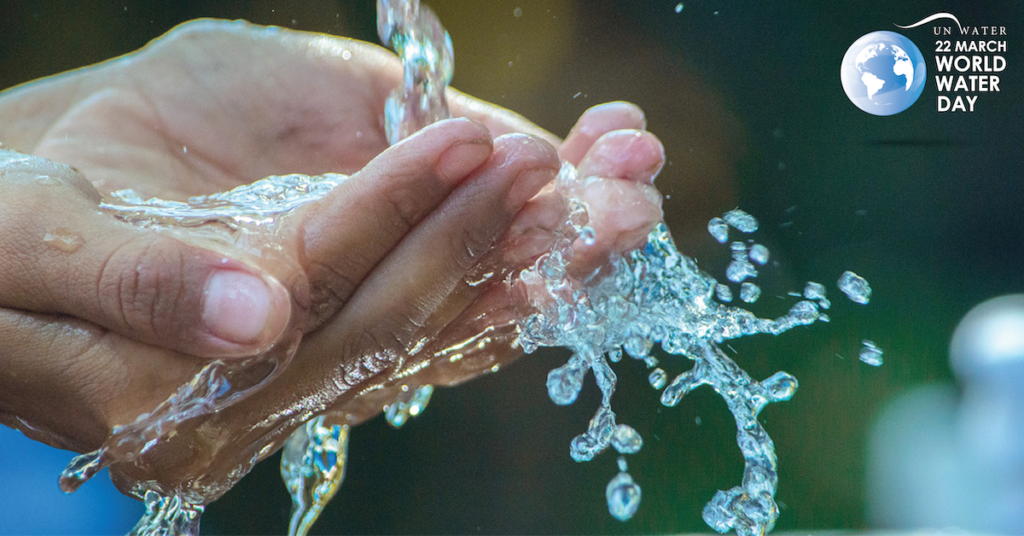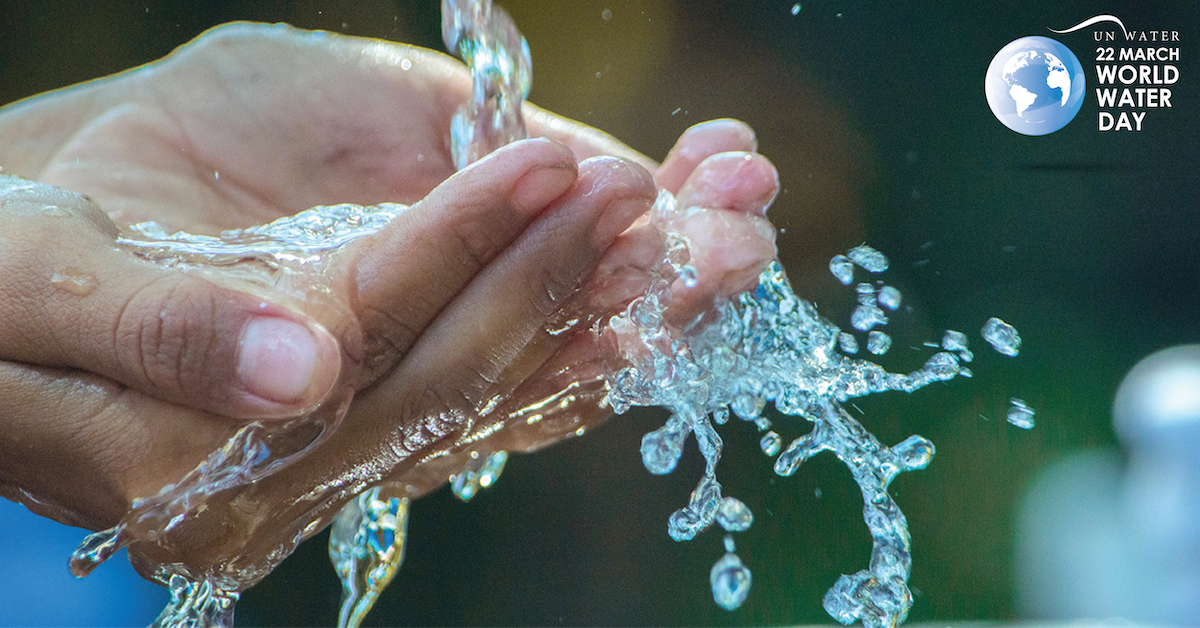
On the occasion of World Water Day – celebrated on March 22 every year, we asked Dona Geagea – Global Lead for Water Innovation Labs with Waterlution to elaborate on the Rise of Future Water Leaders. She writes about what can be done to shape and prepare the next generation.
We need Water Leaders
We need a next generation of water leaders who are able to thrive in a complex future.
Water is at the top of the list of complex problems, as the essence of all life and on which we are directly and indirectly dependent. It is interlinked with our energy production, food security and health (as in the case of the recent COVID-19 and its visible link with sanitation). Solutions to improve how we steward our water resources is dependent on our ingenuity to expand our eco-systems thinking to include the human component into “nature” rather than separate from it. It is also dependent on our ability to innovate – and as Einstein said, we cannot think of the solution with the same thinking that created the problem in the first place.
Old modes of functioning, like hierarchical and isolated sector-based decision making, when placed within increasingly complex and dynamic systems like natural systems, prove to be outdated and rather dysfunctional. This is the case because in complex systems – take as an example our water resources under climate change impacts for instance – change is fast-paced, variables are unpredictable, and results cannot be guaranteed.
Now is the time to prepare our future Water Leaders as we desperately need innovative thinkers.
Social Innovation for Water Challenges
Innovation, however, is often misunderstood. In the water sector, it is not only about new or inventive technology that “fix” water problems. Innovation can be social too. Social innovation is an equally necessary form of innovation as it focuses on shifting behaviour to address the problem. We can have the best technology in place designed to solve our water challenges, but if humans continue to over-consume, heavily pollute and poorly manage our finite water resources, no technology alone will suffice to fix this conundrum.
Social innovation works on creatively shifting patterns of behaviour. It can be about the ways we gather to solve our problems, the ways collective decisions are made, the way art and science are merged to raise awareness, the way citizens and politicians are given tools to interact more democratically for water-related monitoring and decision-making, and the way water stewardship is incorporated into our education system, as a few examples. Social innovation could even permit cultural roots to become channels of change, through organising water festivals and celebrations.
In short, these are critical skills and opportunities that we need to be equipping our young leaders with to tackle solving water challenges adequately and effectively over the next decades. This will determine how we flourish or fail as a human race.
Water Innovation Labs
The skills around which we train our young leaders during various Water Innovation Labs globally at Waterlution (a Canadian non-profit) break silos of disciplines and expertise where in the past many barriers existed. For example, where engineers would only work with engineers; social scientists would only understand social scientists, and artists would only co-create with other artists. Skills of the future (that are already in demand now) enable collective thinking and acting, permit breaking old patterns for seeing problems, and invite design and systems thinking to arrive at holistic solutions. This is where engineers are speaking with artists, consulting with social scientists, and inviting entrepreneurs into the same group to tackle the problem collectively. These are skills that permit assessing silo “blind spots”, by widening the scope of perspectives around a problem and foreseeing unintended consequences to any big idea or solution.
Waterlution and our multi-sector and stakeholder partners in Lebanon, like Berytech, UNICEF, Swiss Development Cooperation and the American University of Beirut among many others, are unwaveringly dedicated to boost a generation of environmental leaders who think holistically and design innovatively.
Lebanon’s future is dependent on the quality of young leaders we are raising, and how well we are preparing them.
Moving Forward
What can I do, you might ask? If you are a company, invest your resources in your young staff to help them build capacity for environmental leadership, or invest in programs that offer water-focused capacity-building opportunities for youth.
If you are a parent, encourage your kids to participate early in environmental and water stewardship programs, and start one where it is missing.
If you are an NGO, collaborate on initiatives focused on environmental and water related challenges (even if it’s not your “domain”) for opportunities to innovate.
If you are a young leader, spend more time near water or on the water (as the best way to connect with it) and seek out opportunities that connect you more closely to water stewardship like forest protection groups, beach cleanups, CEWAS or Berytech entrepreneurship programs and of course, leadership opportunities like Water Innovation Labs.
The Water Innovation Lab Lebanon will be taking place from June to December 2020. For more information, contact wil.lebanon@waterlution.org or visit https://waterlution.org/water-innovation-labs/wil-lebanon-2020/.
About the author
Dona Geagea is a Lebanese Canadian stakeholder engagement expert and facilitator. She spent the past 10 years professionally contributing to the water sector. She is Global Lead for Water Innovation Labs with Waterlution and has organised and facilitated sessions at international climate and water conferences (i.e World Water Forum in South Korea and in Brasil; Singapore International Water Week; Budapest Water Summit; International Climate Transparency Retreat). She holds a master’s in water governance from McMaster University, Canada and the United Nations University-Institute for Water, Environment and Health). She leads the Water Innovation Lab Lebanon with her dedicated team.








